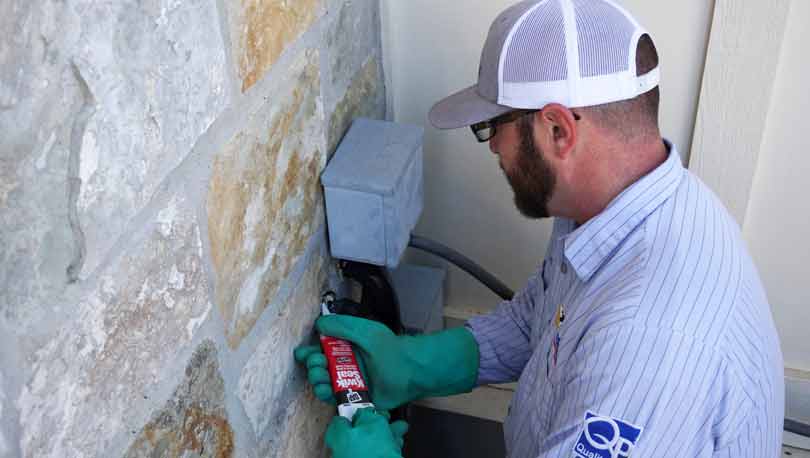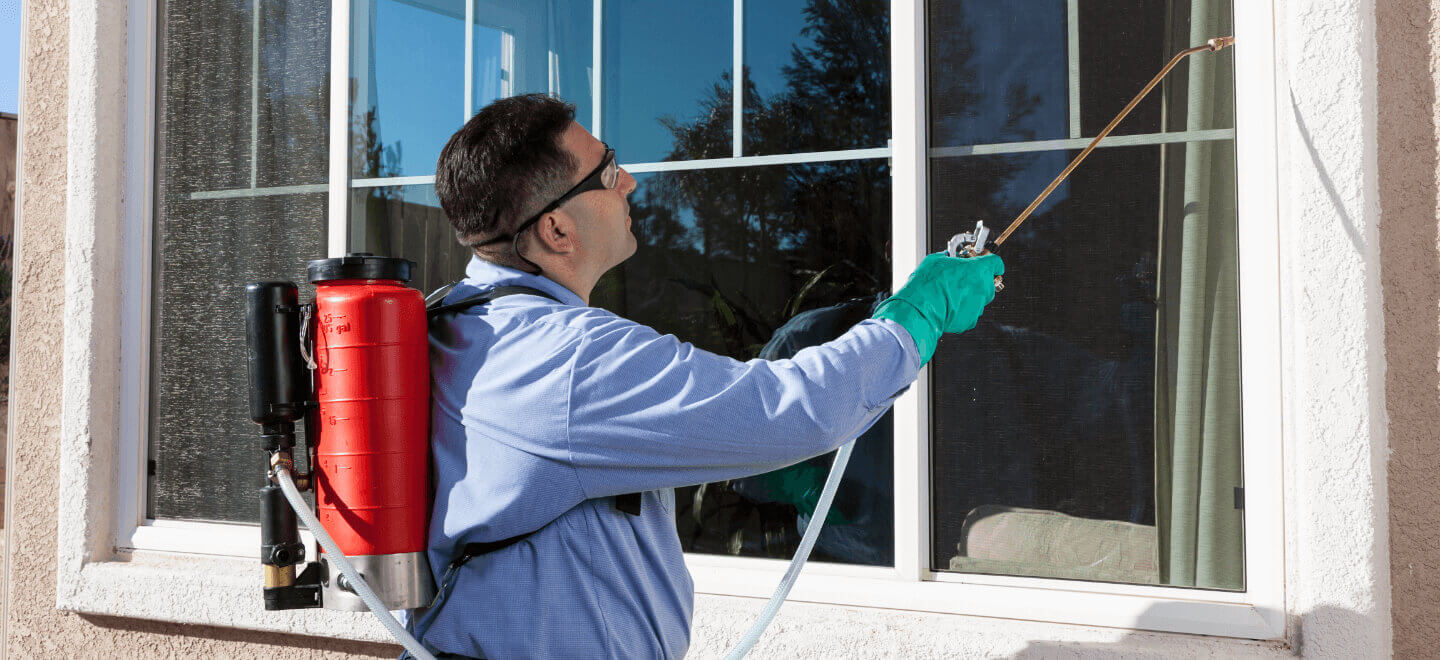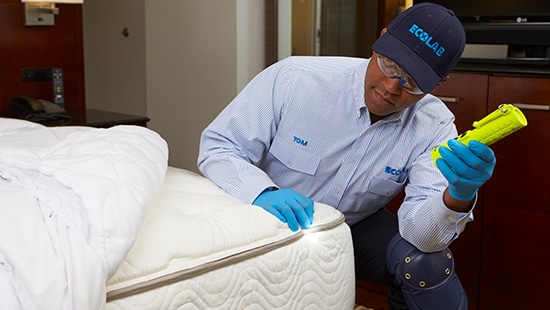Discovering the Various Kinds Of Insect Control Techniques and Their Applications
Insect control is an essential facet of maintaining a healthy and balanced and safe setting, whether it be in residential, commercial, or farming settings. Different techniques have been created and improved over the years to efficiently take care of and minimize parasite invasions. From chemical methods that target specific insects to organic approaches that harness natural predators, the world of pest control is substantial and diverse. Recognizing the various kinds of parasite control methods and their applications is crucial for implementing one of the most sustainable and appropriate remedies. Let's explore the intricacies of these methods and just how they can be successfully made use of to resolve pest-related challenges.
Chemical Parasite Control Strategies
Chemical pest control strategies are extensively utilized in agriculture and parasite monitoring to successfully remove or control pest problems. These methods entail the usage of chemical materials, such as pesticides, herbicides, and chemicals, to lower or remove insect populations that pose a danger to plants, animals, or human wellness.
While chemical pest control methods can be highly effective in managing bug populaces, they additionally raise problems about possible environmental and wellness dangers. Inappropriate use or overuse of chemical pesticides can cause pollution of air, dirt, and water, harming non-target organisms and triggering long-term ecological damages. Additionally, repeated exposure to chemical deposits may position health risks to farmworkers, consumers, and wildlife. Hence, it is important to follow safety standards, use incorporated pest administration strategies, and think about alternate techniques to lessen the adverse impacts of chemical bug control methods.
Organic Bug Control Methods
 Biological parasite control techniques use living organisms to take care of and lower parasite populaces in a sustainable and ecologically friendly fashion. This technique involves presenting all-natural predators, bloodsuckers, or pathogens to regulate insects without the requirement for artificial chemicals. One typical approach is the launch of ladybugs to combat aphids in gardens, as ladybugs are natural killers of these devastating parasites. An additional instance is the usage of Bacillus thuringiensis (Bt), a germs that produces toxins dangerous to certain insect larvae, to control caterpillars and insects.
Biological parasite control techniques use living organisms to take care of and lower parasite populaces in a sustainable and ecologically friendly fashion. This technique involves presenting all-natural predators, bloodsuckers, or pathogens to regulate insects without the requirement for artificial chemicals. One typical approach is the launch of ladybugs to combat aphids in gardens, as ladybugs are natural killers of these devastating parasites. An additional instance is the usage of Bacillus thuringiensis (Bt), a germs that produces toxins dangerous to certain insect larvae, to control caterpillars and insects. 
Biological pest control techniques offer a number of benefits over chemical techniques. Generally, biological pest control approaches provide a efficient and all-natural alternative to standard chemical treatments, promoting a balanced ecosystem and much healthier atmospheres.
Physical Insect Control Approaches
Using physical methods to manage parasites entails the use of non-chemical or mechanical means to manage and mitigate pest infestations effectively. One usual physical bug control method is the installation of fencings, nets, or screens to block insects from going into certain areas.
An additional physical technique is the usage of catches, such as snap catches for rats or pheromone traps for bugs. These catches purpose to capture pests without presenting any kind of danger to humans or the environment. Additionally, physical control techniques can include strategies like handpicking pests off plants, utilizing vacuum cleaner gadgets to remove bugs, or employing heat therapies to eradicate bed bugs and various other parasites in plagued locations.
Integrated Parasite Monitoring Techniques
Executing a holistic strategy to pest administration, Integrated Parasite Administration (IPM) methods aim to combine different efficient methods to protect against and manage parasite infestations while reducing environmental influence and guaranteeing lasting parasite control methods. IPM involves the combination of multiple control methods such as biological control, cultural methods, mechanical control, and the careful use chemicals.

In addition, IPM highlights the relevance of surveillance and analyzing pest populaces to identify the most suitable control methods. By implementing IPM strategies, parasite control efforts end up being more targeted and effective, decreasing the threats related to extreme pesticide use and advertising lasting bug administration services.
All-natural and Organic Pest Control Options

One preferred organic pest control technique is neem oil, stemmed from the seeds of the neem tree, which works as a repellent and interrupts the growth and development of bugs. Diatomaceous earth, an all-natural silica-based powder, is an additional effective organic bug control alternative that functions by dehydrating pests upon contact. By incorporating natural and all-natural pest control choices into insect management approaches, people can successfully regulate insects while reducing damage to the setting and advertising sustainable practices.
Conclusion
Finally, different insect control techniques such as chemical, biological, physical, incorporated bug monitoring, and natural choices are available for properly handling insect problems. Each method has its very own benefits and applications relying on the type of bug and the environment. By understanding the various sorts of pest control methods and their applications, people can make informed choices on one of the most suitable method to regulate insects and shield their residential or commercial property.
Chemical parasite control methods are extensively used in farming and parasite monitoring to successfully eradicate or manage pest invasions - Orem Pest Control. All-natural pest control approaches entail using organic control representatives, such as killers or bloodsuckers, to manage parasite populations. By incorporating organic and all-natural bug control alternatives into pest administration strategies, individuals see it here can properly control bugs while minimizing damage to the setting and advertising lasting practices
In conclusion, numerous parasite control techniques such as chemical, biological, physical, incorporated parasite monitoring, and all-natural options are available for successfully handling insect problems. By understanding the various kinds of pest control techniques and their applications, individuals can make enlightened decisions on the most suitable technique to control insects and shield their home.